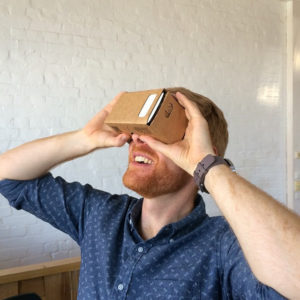
 One of the greatest pleasures of a new colleague is the new ideas and ways of thinking that they bring to a team.
One of the greatest pleasures of a new colleague is the new ideas and ways of thinking that they bring to a team.
New learning technologist Tab Betts (@MrTabKey) introduced the Sussex TEL team to Anchor FM during Digital Innovation Week #DIWSussex.
We’d like to share this app with our readers here as a potential tool for teaching and learning. Read more ›


 Canva
Canva
 Design, ran a ‘Makerspace: Light an LED with Pencil, Ink and Paper’ workshop which introduced participants to ways of making simple circuits out of paper, pencils and conductive ink. We decided to find out more about Pollie’s teaching practices both in the community and at Sussex. The interview is edited for brevity and clarity.
Design, ran a ‘Makerspace: Light an LED with Pencil, Ink and Paper’ workshop which introduced participants to ways of making simple circuits out of paper, pencils and conductive ink. We decided to find out more about Pollie’s teaching practices both in the community and at Sussex. The interview is edited for brevity and clarity. 


